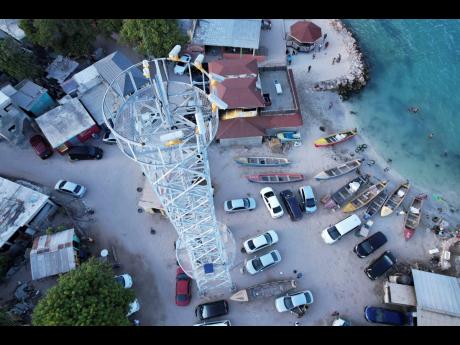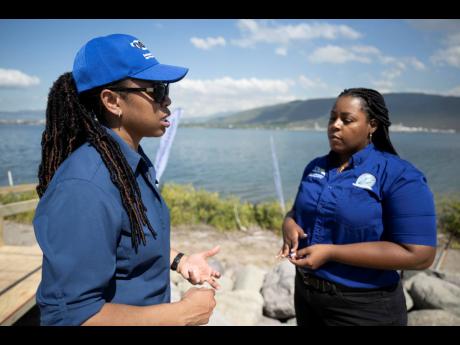NEPA says too early to assess shoreline data captured by Hellshire monitoring tower
Nearly two years after the National Environment and Planning Agency (NEPA) announced that the Caribbean’s first beach erosion monitoring tower was installed at a cost in excess of US$1 million along Half Moon Bay Beach in Hellshire, St Catherine,...
Nearly two years after the National Environment and Planning Agency (NEPA) announced that the Caribbean’s first beach erosion monitoring tower was installed at a cost in excess of US$1 million along Half Moon Bay Beach in Hellshire, St Catherine, experts from the institution say data are still not ready to be shared.
When The Gleaner questioned the representatives from the agency on Thursday about the impact the tower has made since the government of South Korea pumped funding into it, Chanel Raynor, acting coordinator for ecosystems at NEPA, said that the cameras on the towers are currently taking shots of the shoreline position and, over time, will be able to track beach erosion.
“With this data, it will influence any sort of hard engineering that should come down the line, so that any plans that we have are informed by quantitative data. The next phase is to fine-tune some maintenance and data analysis issues and we will be fully operational,” Raynor said.
“This is one of the tools that we’re using in terms of capturing data remotely. Previously, our beach-monitoring programme would have persons going out there and looking at the change and the width and we still do that, but we are moving to this kind of innovation, which is going to help us to track, more definitively, the change, in terms of our beach width and the impact of beach erosion in that particular location,” Raynor told The Gleaner.
“We’re using this somewhat as a launching pad. We are still working on the nuances. This is the first time we’re doing it,” she said.
Raynor also said that NEPA has been in dialogue with partners as to what is next, also identifying other locations where such a monitoring system could be useful as well.
Speaking with The Gleaner at NEPA’s World Wetlands Day activity along the Palisadoes Strip in Kingston, Raynor noted that the recording of images and video from the monitoring activities started in 2022.
The tower captures pictures, which run through software, which then translates the images into numerical data.
The Hellshire monitoring tower is a part of a regional project that is being spearheaded by the Association of Caribbean States and funded by the government of South Korea with technical assistance from Cuba. Some of the other regional territories participating in the project include Panama, Cuba and Trinidad and Tobago.
Scores of Jamaicans have, in recent years, expressed concern over the fact that they have witnessed significant beach erosion during their lifetime, cutting away Hellshire’s shoreline primarily in the last two decades. Many have noted the dramatic change seen at the Hellshire Beach, which they have visited and enjoyed as children and young adults.
Along with a documented loss of between one and two metres annually, beach erosion along the shores of Hellshire is very much evident where waves now crash against some of the restaurants which were built metres away from the sea decades ago.
The theme for World Wetlands Day is ‘It’s Time For Wetland Restoration’.


